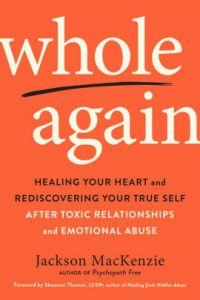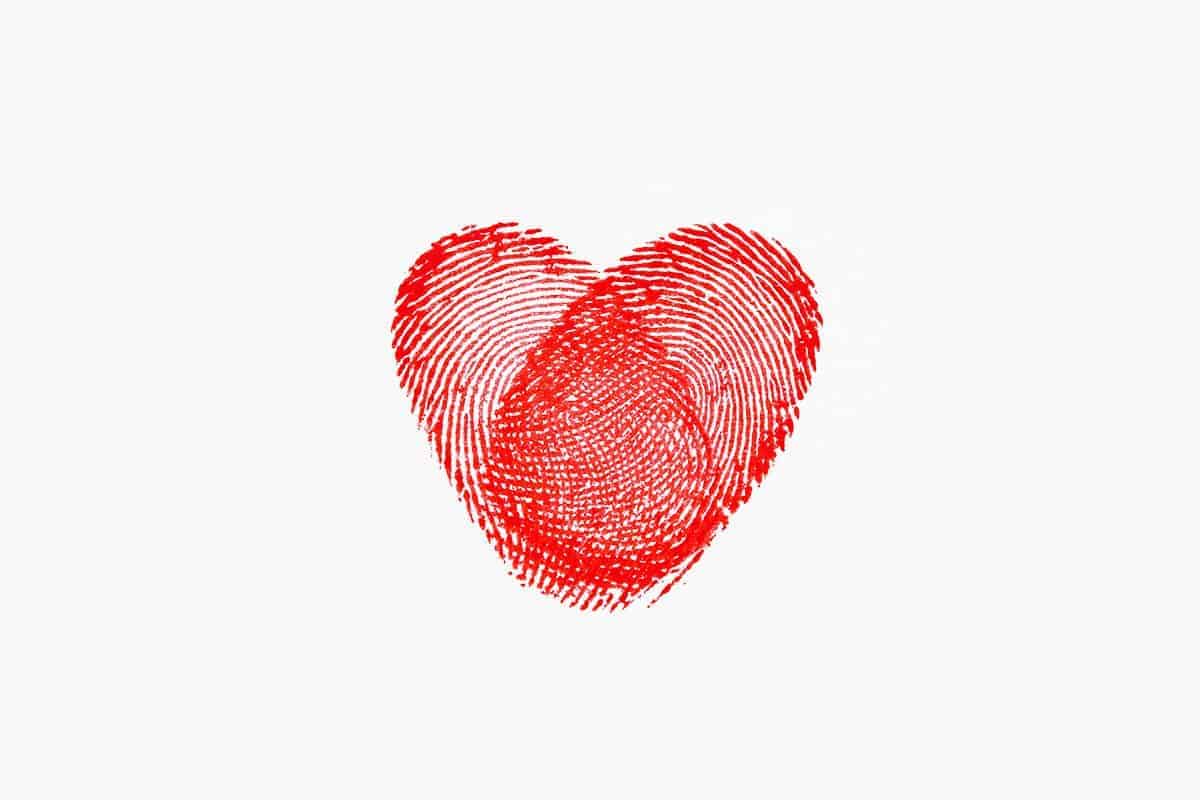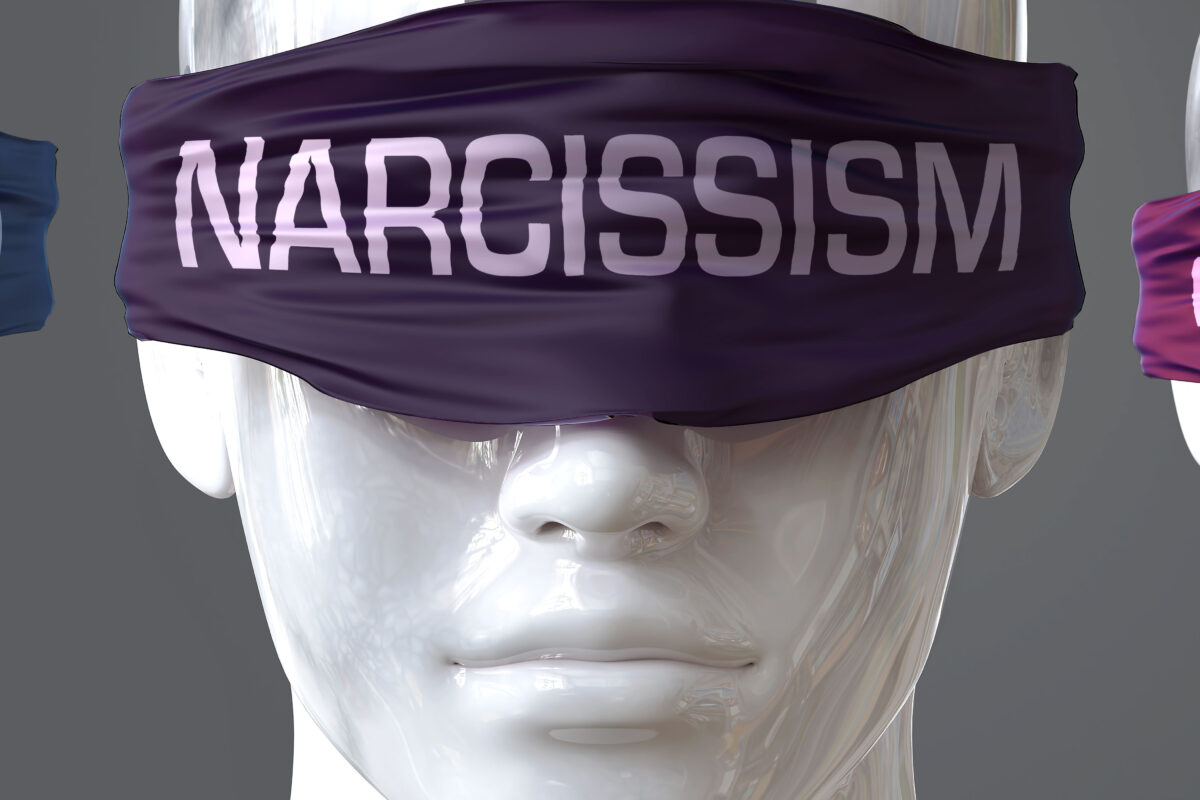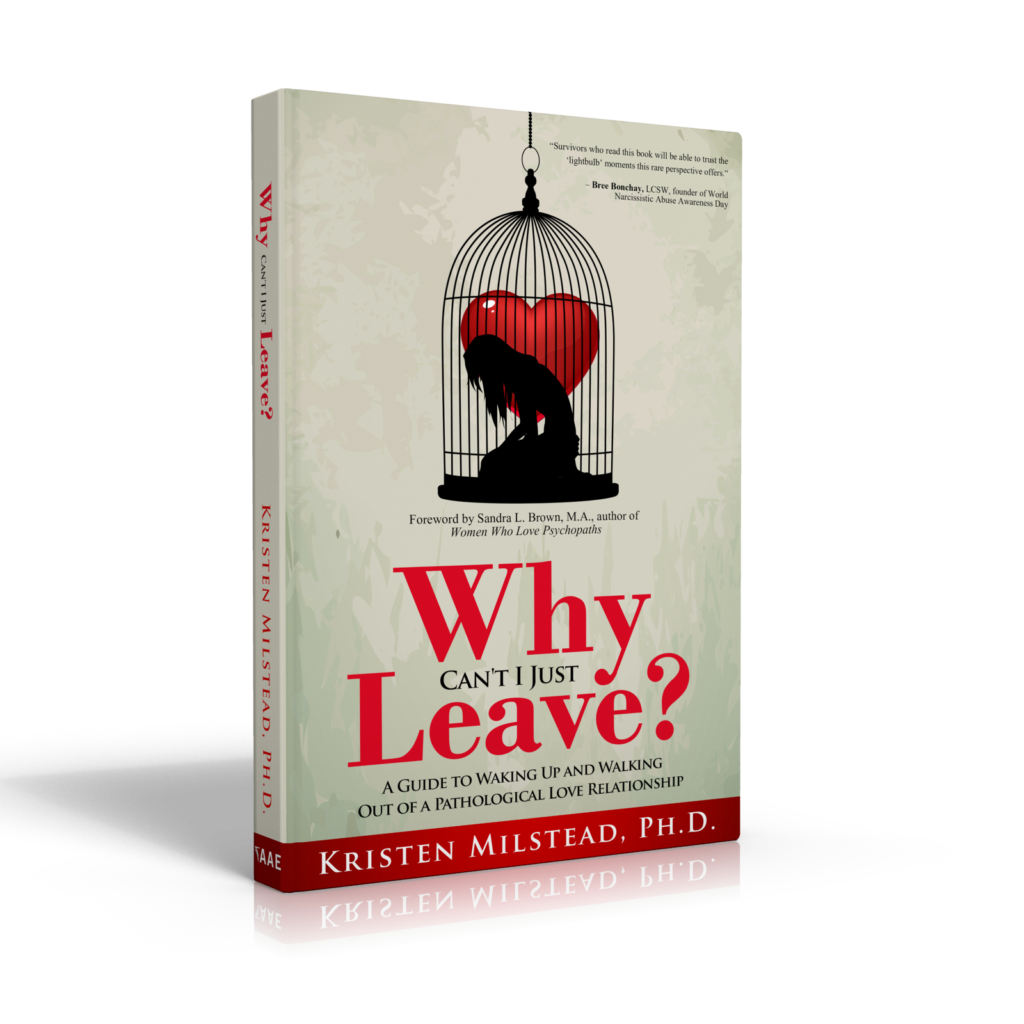Jackson MacKenzie saved my life.
Okay, maybe it wasn’t quite that extreme, but his book, Psychopath Free, kept me going in some dark moments.
His website was one of the first that I found and spent time on in the aftermath of the initial “unmasking.” You know what I’m talking about. The revelation (or series of revelations, in my case) that showed me that something was terribly wrong in my past relationship.
 Psychopath Free is a classic in the literature on narcissistic abuse. Let me count the ways:
Psychopath Free is a classic in the literature on narcissistic abuse. Let me count the ways:
- His original list of 30 Red Flags for Spotting Toxic People from the book (and website) is cited or referenced in many other lists of red flags or warning signs.
- The list of “word salad” techniques for how toxic people engage in circular conversation is found in memes and re-copied all over the Internet.
- Both the step-by-step “break-up checklist” and the “abuser’s trap” show the exact chain of events that allow toxic people to use situations to their advantage to isolate their partners and to blame them for the breakup.
- He goes into explicit detail about exactly what is lost through narcissistic abuse and why it hurts so much spiritually.
If you haven’t read this book, I whole-heartedly recommended it. Survivors are in luck, however, because MacKenzie has also graced us with a second book. Whole Again was released on Tuesday, January 8, 2019.
As MacKenzie says in the book, “Most of my early work focused on the behaviors and symptoms of sociopathy and pathological narcissism, in order to help victims of toxic relationships identify and protect themselves from abuse. This helped people identify the causes of their suffering, but it didn’t help them resolve their suffering.”
Whole Again seeks to fill that gap. He wrote it for anyone suffering from “perfectionism, codependency, attachment disorders, personality disorders, trauma or the aftermath of an abusive relationship.”
Staying Present
The book starts off with what his own life was like in the long-range aftermath of his abusive relationship. It was interesting to read about his long struggle to recover. He was over the relationship, and yet something was still wrong. He describes a numb tightness in his chest. No type or amount of therapy, medication, exercise, or success would make it go away.
The feeling grew worse, but then one day he stopped trying to run away from it. Instead, he stayed with it and tried to understand it. That was when he began to heal.
As he says, you cannot “think” it away, you have to feel it. When you stay present with the feeling, you are changing how you approach your own pain.
What I appreciate about MacKenzie’s perspective is the way he steps outside of his own experience when he writes. He has a talent for analyzing what he’s been through and explaining it to others with eloquent and thorough proficiency.
Hear more from Jackson about recovering from narcissistic abuse and what drove him to write the new book in this interview with Tracy Malone at Narcissist Abuse Support.
The message in Whole Again is simple, and yet it can be so difficult to grasp: everyone is worthy of unconditional love.
He describes how the scars of narcissistic abuse activate a protective barrier that blocks us from giving ourselves this love. Ironically, the abusive situation can awaken us to the realization that we have it within ourselves to give. He explains how to start dismantling the protective self by re-wiring our own neural pathways to do just that.
The book contains both practical skills and ideas (the how), as well as more descriptive sections on core beliefs, self-judgment, and other concepts. These things should help readers step back and be gentle with themselves or see things in a new way. But there’s no preaching or patronizing here. It’s as if he knows where to stop explaining and provide a tangent about why we might feel skeptical.
This book is extraordinary in both its message and its honesty. Reading the book is like sitting and listening to an old friend. The friend talks to you about his journey to learn self-love and holds out his hand to help you down the path when you’re ready.
I’ll be reading it through a few more times in the coming months. I’d recommend it for anyone who is out of their relationship but feels as if they are still trying to figure out how to recover from narcissistic abuse, and they’re not quite sure why.





